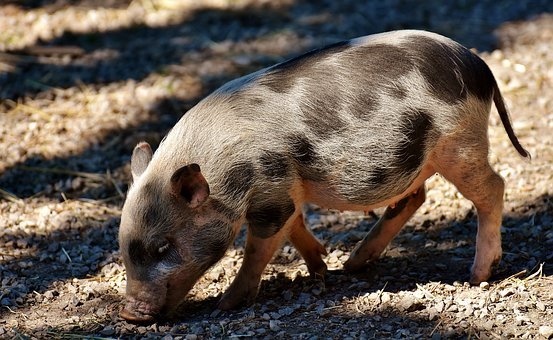Food Neophobia: The Piglet's Dilemma
Researchers in the Netherlands have demonstrated that piglets are more willing to try new foods when they are with their mothers.
Pigs are omnivores. They will eat nearly anything. This means that they have a wide array of foods available to them but it also means that they face the risk of eating something harmful. Young omnivores frequently show ‘food neophobia,’ a fear of new foods, and this behavior helps them to avoid potentially harmful foods.
The scientists predicted that piglet food neophobia would be reduced in the presence of the mother pig. When young omnivores are learning about new foods, they will pay close attention to their mother’s behavior. Young animals will trust their mother most to help them decide which foods to try and which foods to avoid because she spends the most time with them and is the most closely related to them, genetically.

The Dutch research team provided an ‘enriched environment’ of wood shavings, straw and branches to eight sows and their litters of ten. They also kept eight sows and their litters of ten in barren crates. Five piglets from each litter where presented with new foods (chocolate and cheese) with their mothers present and five from each litter were presented with new foods without their mothers present.
The piglets raised in these enhanced pens showed an increased likelihood to investigate new foods. But even though they investigated the new foods, the piglets raised in the enriched environment would not try the new food on their own. Only when they were with their mothers would they both investigate and try the new food.
Piglets reared in a ‘barren environment,’ on the other hand, would not investigate the food at all when they were on their own. Once their mother was present though they would both investigate and try the new foods. Researchers concluded that a stimulating environment decreases fear of new foods in piglets but that the presence of their mother decreased these fears more dramatically.